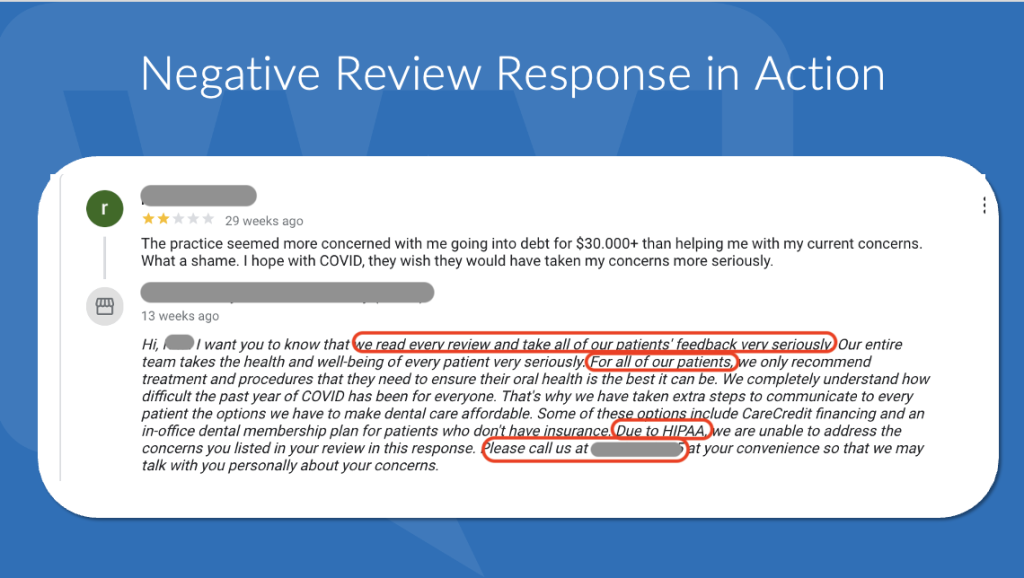To handle negative reviews professionally in dental practices, follow these key steps:
- Acknowledge the patient's concerns sincerely and apologize for their negative experience. This shows empathy and respect for their feedback.
- Respond promptly and calmly, maintaining professionalism without becoming defensive or emotional.
- Offer to take the conversation offline by providing contact information, inviting the patient to discuss their concerns privately. This helps resolve issues without public escalation.
- Use a standardized response protocol with pre-approved templates to ensure consistent, personalized, and efficient replies.
- Avoid threats, coercion, or incentivizing positive reviews, as these are unethical and can lead to legal issues or damage your reputation.
- Leverage negative feedback as an opportunity for improvement by analyzing common complaints (e.g., long wait times, billing issues) and making necessary changes to your practice.
- Thank the reviewer for their feedback, regardless of its nature, to demonstrate that you value patient input and are committed to quality care.
This approach helps build trust with current and prospective patients, manage your online reputation effectively, and improve your practice’s services over time.
Additional important points include:
- Designate a knowledgeable team member to manage reviews and responses, ensuring alignment with practice policies.
- Avoid engaging in public debates or emotional responses to negative reviews.
- Understand that online reviews impact patient decisions, SEO rankings, and practice revenue, so active management is crucial.
By responding professionally and constructively, dental practices can turn negative reviews into positive marketing opportunities and demonstrate a commitment to patient satisfaction.





